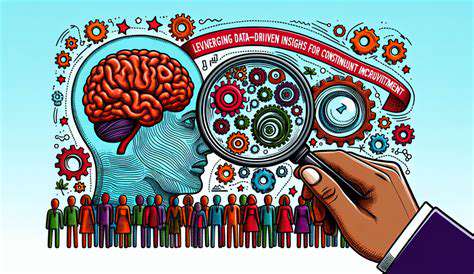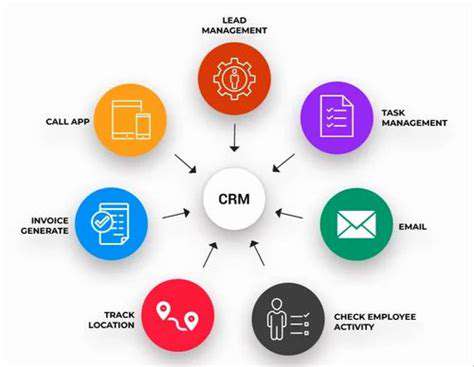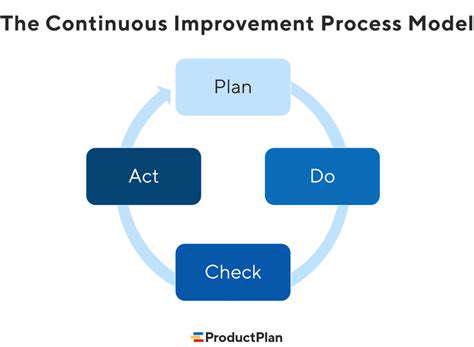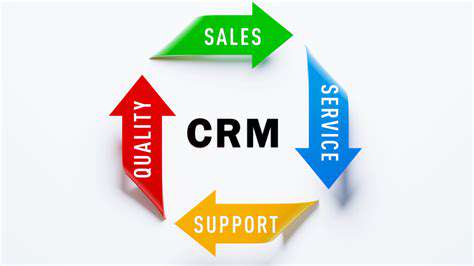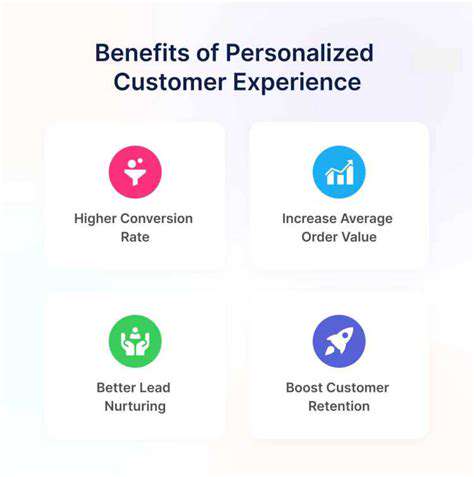Building an Omnichannel Team: Roles and Skills
Key Roles for an Omnichannel Team

Customer Relationship Management (CRM) Specialist
A CRM specialist plays a critical role in ensuring seamless customer interactions across all channels. This involves meticulously managing customer data, ensuring accuracy and consistency across platforms, and using this data to personalize customer experiences. This role is vital for understanding customer preferences and behaviors, leading to improved satisfaction and loyalty. They also segment customers based on needs and behaviors, enabling targeted marketing campaigns and personalized communications.
A skilled CRM specialist emphasizes data security and compliance. They use CRM software to track interactions, identify trends, and provide actionable insights to the team.
Marketing Strategist
A marketing strategist develops and implements comprehensive strategies aligned with the company's goals. This includes identifying target audiences, analyzing market trends, and creating campaigns across channels like social media, email, and the website. They also measure campaign effectiveness and adjust based on data analysis.
They must be proficient in digital marketing, content marketing, and social media marketing. Their understanding of the customer journey allows them to craft consistent messaging across channels, driving conversions and brand loyalty.
Customer Service Representative
Customer service representatives are the front line of omnichannel interactions. They provide prompt, helpful, and consistent support across all touchpoints, including phone, email, live chat, and social media. A key aspect is ensuring seamless transitions between channels, avoiding fragmented customer experiences. Their ability to resolve issues effectively is paramount.
These representatives excel in problem-solving and communication, ensuring customers feel valued regardless of the channel.
Channel Specialist (e.g., Social Media Manager)
Channel specialists, like social media managers, manage specific communication channels. They create engaging content, monitor conversations, and respond to inquiries on those platforms. They also stay updated on trends and best practices for each channel, ensuring a consistent brand voice. They analyze channel performance and identify areas for improvement, optimizing engagement and visibility.
Product Specialist/Expert
Product specialists provide in-depth knowledge about products and services. They answer questions about features, benefits, and usage, and support product-related issues. A key aspect is ensuring consistency in product information across channels, ensuring customers receive accurate and up-to-date information. Their comprehensive product knowledge is essential for creating a positive customer experience.
Operations Manager
The operations manager oversees the entire omnichannel process, ensuring coordination and efficiency. They coordinate between departments, ensuring smooth communication and information flow. They optimize processes to enhance customer experience, reduce response times, and increase operational efficiency. They also identify and resolve bottlenecks.
Data Analyst/Reporting Specialist
Data analysts collect, analyze, and interpret data from various channels. They track key metrics, identify trends, and provide actionable insights to improve customer experience and marketing strategies. Their ability to translate complex data into meaningful insights is essential for data-driven decisions. Reporting specialists present this data in a clear format to the team.
Developing Necessary Skills for Success

Developing Essential Skills for Success
Developing essential skills is crucial for achieving success in any field. These skills encompass communication, problem-solving, critical thinking, and leadership qualities. Mastering these empowers individuals to navigate challenges, seize opportunities, and achieve personal and professional goals.
Acquiring these skills requires practical application in real-world situations. Practice and experience refine these abilities, making them effective tools for success. Continuous learning and adaptation ensure individuals remain relevant in a dynamic environment.
Communication and Collaboration
Effective communication is paramount in today's interconnected world. It includes verbal and written communication, active listening, and understanding diverse perspectives. Strong communication skills are essential for building strong relationships personally and professionally.
Collaboration is another crucial skill. Working effectively with others, sharing ideas, and contributing constructively to a team environment is vital. Successful collaboration hinges on mutual respect, open communication, and willingness to compromise.
Problem-Solving and Critical Thinking
Problem-solving involves identifying issues, analyzing situations, and developing effective solutions. This requires critical thinking, evaluating information, identifying biases, and forming reasoned judgments. These skills are invaluable in navigating complex challenges and making sound decisions.
The ability to approach problems systematically and think critically is essential in any field. Whether personal, professional, or academic, these skills are vital for overcoming obstacles and achieving desired outcomes.
Adaptability and Time Management
Adaptability is the ability to adjust to changing circumstances and embrace new situations. In today's rapidly evolving world, adaptability is key for navigating uncertainty and remaining resilient. Adaptable individuals are often more successful in their careers and personal lives.
Effective time management involves prioritizing tasks, organizing schedules, and utilizing time efficiently. Excellent time management skills allow individuals to accomplish more, leading to increased productivity and reduced stress. Developing these essential skills fosters greater success in personal and professional endeavors.

Read more about Building an Omnichannel Team: Roles and Skills
Hot Recommendations
- Personalizing Email Content with User Behavior
- Geofencing for Event Attendance Tracking
- Reputation Management on Social Media
- UGC Beyond Photos: Videos, Testimonials, and More
- The Future of Data Privacy Regulations
- Accelerated Mobile Pages (AMP) Benefits and Implementation
- The Future of CRM: AI and Voice Integration
- Google Ads Smart Bidding Strategies: Maximize Value
- Common A/B Testing Pitfalls to Avoid
- Local SEO Strategies for Small Businesses



